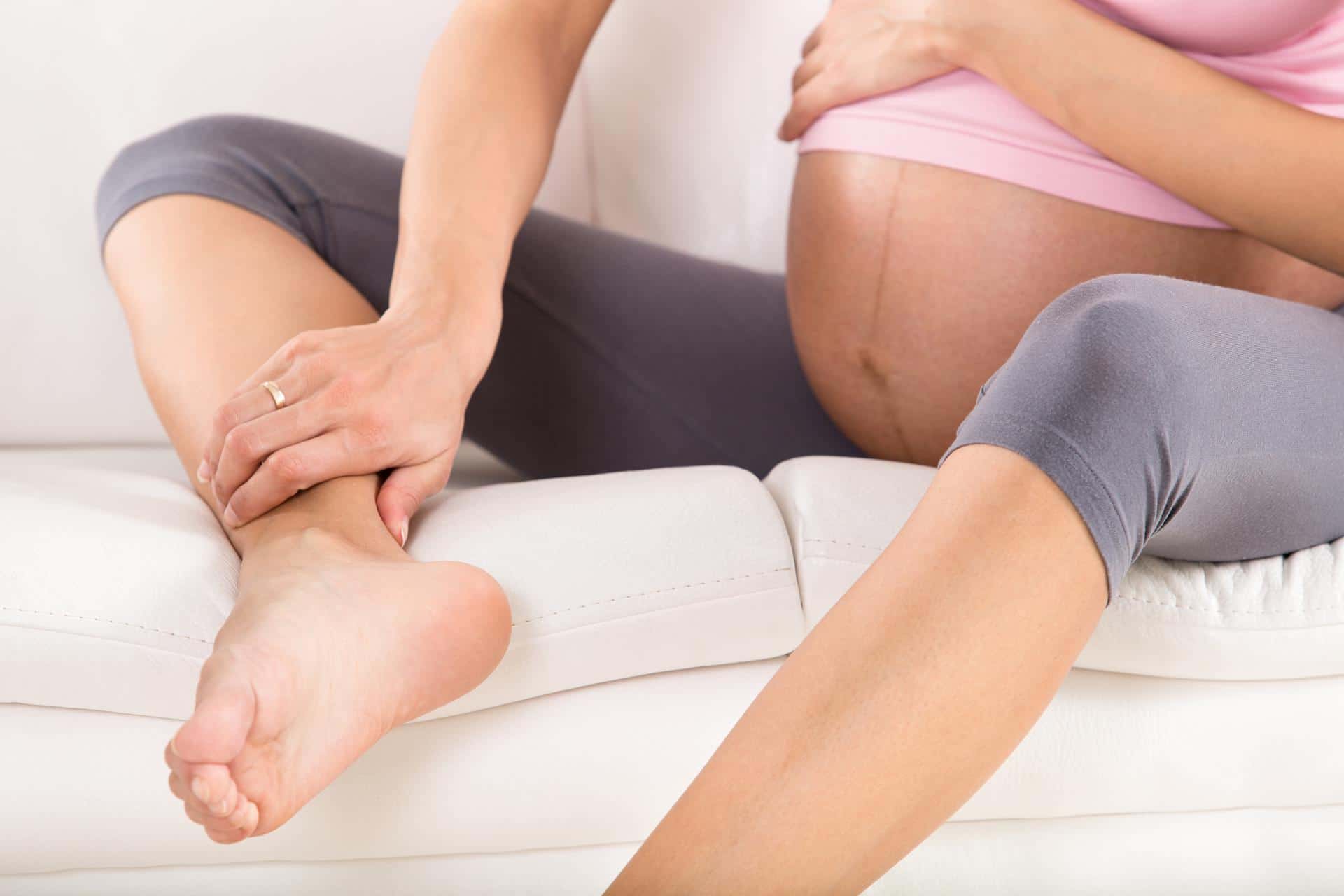My Cart(0)
Soothing Swollen Feet: Coping with Pregnancy-Related Edema

Introduction
Pregnancy is a beautiful journey filled with excitement, anticipation, and a myriad of physical changes. However, along with the joy of expecting a baby, many women experience discomfort, including swollen feet. Swollen feet, or edema, is a common symptom during pregnancy, caused by increased fluid retention and pressure on the veins. If you're one of the many moms-to-be dealing with swollen feet, fret not! In this comprehensive guide, we'll delve into the causes, symptoms, and practical tips from experts to help alleviate discomfort and keep your feet happy and healthy throughout your pregnancy.

Understanding Swollen Feet During Pregnancy
Swollen feet, often accompanied by puffiness and discomfort, are a common occurrence during pregnancy. Healthline explains that hormonal changes, increased blood volume, and pressure from the growing uterus can lead to fluid retention in the body, particularly in the lower extremities. Additionally, reduced circulation and gravity contribute to swelling in the feet and ankles, making it a prevalent concern for expectant mothers.
Symptoms and Risks
While mild swelling is considered normal during pregnancy, it's essential to monitor your symptoms and be aware of potential risks. The UT Southwestern Medical Center highlights that severe or sudden swelling, especially if accompanied by other symptoms such as headache, visual disturbances, or abdominal pain, could indicate a more serious condition like preeclampsia. It's crucial to consult your healthcare provider if you experience significant swelling or have concerns about your symptoms.
Tips for Managing Swollen Feet
- Stay Active
Mayo Clinic emphasizes the importance of staying active during pregnancy to improve circulation and reduce swelling. Gentle exercises such as walking, swimming, or prenatal yoga can help keep your blood flowing and prevent fluid buildup in your feet and ankles. Aim for at least 30 minutes of moderate exercise most days of the week, but listen to your body and avoid overexertion.
- Elevate Your Feet
When your feet are swollen, elevating them above the level of your heart can help reduce fluid retention and alleviate discomfort. UT Southwestern Medical Center suggests propping up your feet on pillows while lying down or sitting in a reclined position. Elevating your feet for short periods throughout the day can promote better circulation and provide relief from swelling.
- Wear Comfortable Shoes
Choosing the right footwear is crucial for pregnant women dealing with swollen feet. Healthline recommends opting for supportive, comfortable shoes with low heels and ample room for your toes. Avoid tight-fitting shoes or high heels, as they can exacerbate swelling and discomfort. Consider investing in orthotic inserts or support stockings to provide additional cushioning and improve circulation.
- Stay Hydrated
Drinking an adequate amount of water is essential for overall health and can also help reduce swelling during pregnancy. Mayo Clinic advises pregnant women to stay hydrated by drinking plenty of fluids throughout the day. While it may seem counterintuitive, staying hydrated can actually help flush excess sodium from your body, reducing fluid retention and swelling in your feet and ankles.
- Practice Leg Massage
Gentle massage can be a soothing way to alleviate swelling and promote circulation in your legs and feet. UT Southwestern Medical Center suggests using gentle, upward strokes to massage your feet and ankles, starting from the toes and working your way up towards the calves. Incorporating aromatherapy oils such as lavender or peppermint can enhance the relaxation benefits of the massage.
- Monitor Your Sodium Intake
Excess sodium can contribute to fluid retention and swelling during pregnancy. Healthline recommends monitoring your sodium intake by avoiding processed foods, fast food, and excessive salt in your diet. Instead, focus on consuming whole, nutrient-rich foods and flavoring your meals with herbs and spices rather than salt. Be sure to read food labels carefully and opt for low-sodium alternatives whenever possible.
- Use Cold Compresses
Applying cold compresses to swollen areas can provide immediate relief and help reduce inflammation. Mayo Clinic suggests using a cold pack or a bag of frozen vegetables wrapped in a towel and applying it to your feet for 15-20 minutes at a time. The cold temperature constricts blood vessels, reducing swelling and numbing the area, providing temporary relief from discomfort.

Conclusion
Swollen feet during pregnancy may be a common discomfort, but with the right strategies and self-care practices, you can effectively manage your symptoms and promote overall comfort and well-being. By staying active, elevating your feet, wearing comfortable shoes, staying hydrated, practicing leg massage, monitoring your sodium intake, and using cold compresses, you can alleviate swelling and keep your feet happy throughout your pregnancy journey. Remember to consult your healthcare provider if you have concerns about your symptoms or experience severe swelling, as it could be a sign of an underlying medical condition requiring further evaluation. With proper care and attention, you can navigate pregnancy-related edema with confidence and grace, focusing on the joy and anticipation of welcoming your bundle of joy into the world.
unsubscribe at any time without costs.










